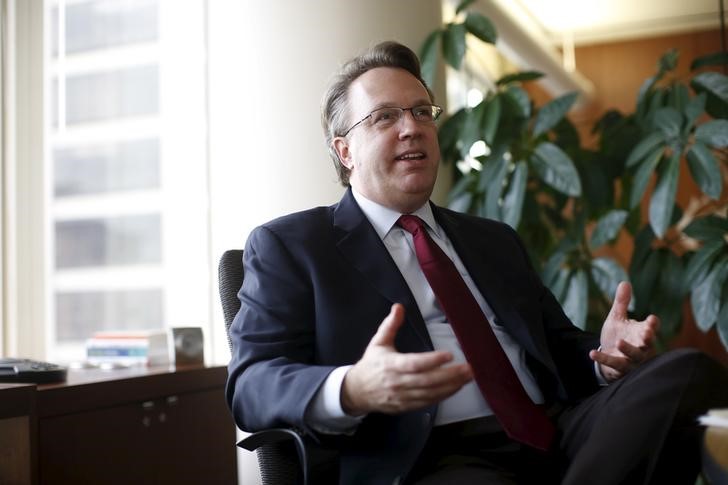SYDNEY, June 27 (Reuters) - Central banks in the United States and other advanced economies will find themselves stuck with slow growth over the longterm unless fiscal authorities do something decisive to turn things around, a U.S. central banker warned Tuesday.
That dour view may come as a surprise given that the Federal Reserve raised interest rates earlier this month and plans to continue to do so gradually to keep the U.S. economy from overheating. Rising interest rates often signal optimism about economic prospects.
But, San Francisco Federal Reserve President John Williams said Tuesday, while the economic news is encouraging in the short-term, over the longer run it is bound to disappoint.
Aging demographics and a productivity slowdown are putting the brakes on global growth, he said in remarks prepared for delivery to Macquarie University in Sydney, with long-run yearly trend growth in the U.S., the euro area, the U.K. and Canada now estimated at just 1.5 percent. That is about half the normal pace before the financial crisis.
With growth so lackluster, monetary policymakers will have a harder time managing inflation and maintaining full employment.
That is because lower growth reduces the demand for investment and pushes down on interest rates, leaving central banks less room to cut rates to offset an economic shock.
Unless fiscal policymakers make investments in education, job training, infrastructure and research and development to boost output despite a slow-growing workforce, "monetary policy will be severely challenged to achieve stable prices, well-anchored inflation expectations, and strong macroeconomic performance," Williams said.
(Writing by Ann Saphir; Editing by Diane Craft)
